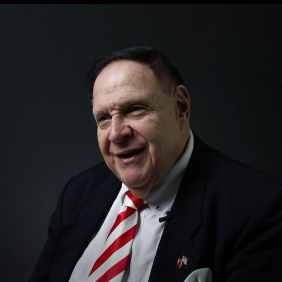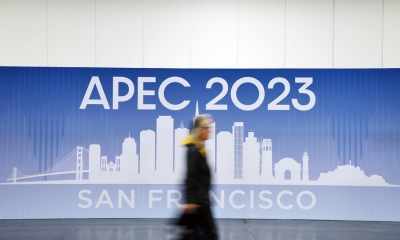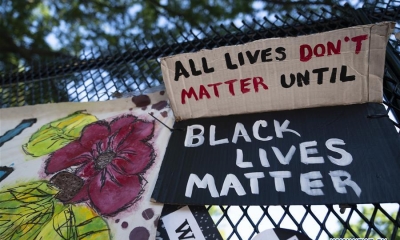Remembering 9/11 and Living with Its Consequences
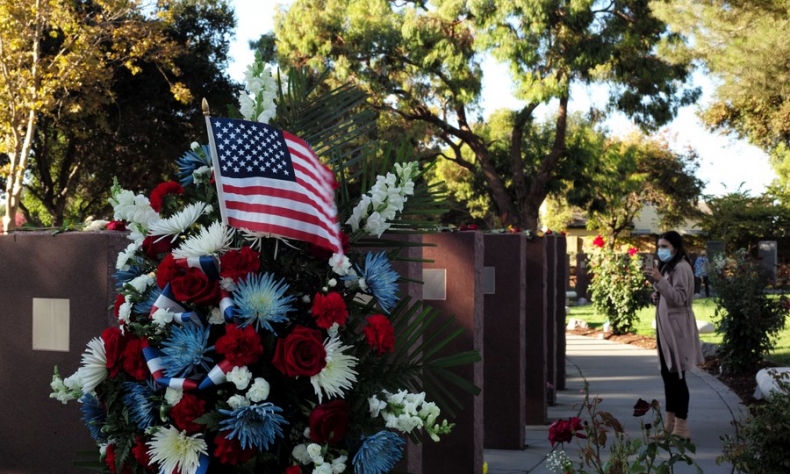
The world would be safer and more stable today if the US did what it falsely accuses China of not doing and that is engaging in the rules-based regional and international order together with China, Russia and their neighbors in the Shanghai Cooperation Organization, ASEAN, UN and the like.
Anniversaries, whether personal or political, are often opportunities for reflecting on the past, assessing the present and planning the future. We, particularly in the United States, are focused on remembering the events of September 11, 2001, especially in light of the 20-year war in Afghanistan triggered by events of that day from which the US has recently so clumsily withdrawn.
Those of us alive on that sunny morning had no inkling of the long-lasting consequences that were about to be triggered. I was in New York in my office at ABC Television when the first plane struck the North Tower of the World Trade Center at 8:46 AM and although I couldn’t see the twin towers about five miles away from there, after walking home uptown that afternoon in a state of shock I could see from my 33rd-floor window the dark smoke rising eight miles away from where the World Trade Center had been. When I was invited to ground zero later in the month by the American Red Cross we were still in a state of shock. And when I met the families of victims in December, we still were in shock, even as the war in Afghanistan was already two months old.
Now many of us are again in a state of shock at the chaotic and seemingly inexplicable way that the US ended the war two weeks ago with nothing to show for the obscene costs expended in money and lives. It’s estimated that $2,261,000,000,000 was spent by the US on the 20-year war. That’s a staggering three hundred million dollars a day, every day, for two decades.
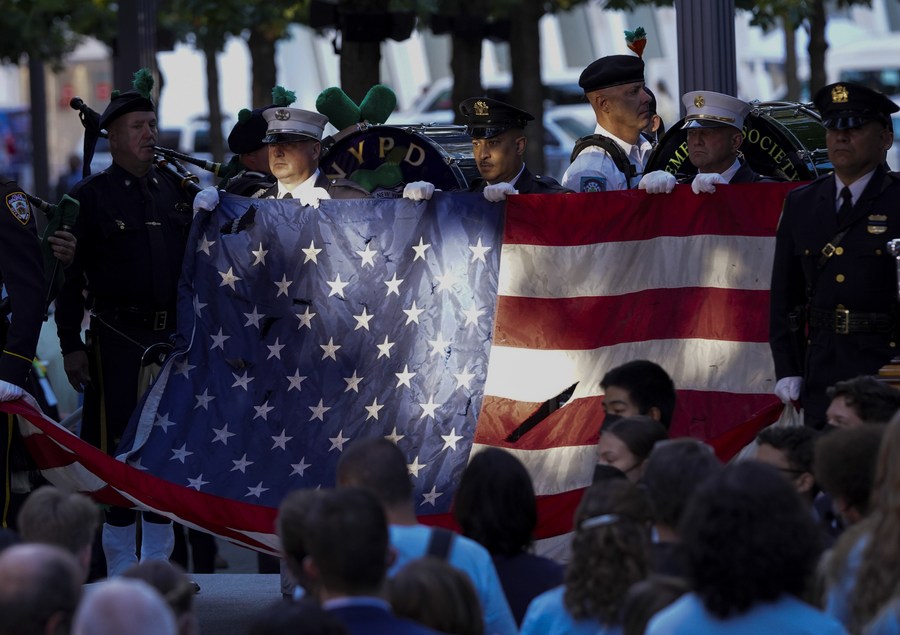
The human costs are perhaps even more staggering. 2,448 US combat deaths, 3,846 US civilian contractors, and 1,144 NATO and other ally deaths. Afghan military and police deaths are estimated to be around 66,000, Taliban and related allied fighters, 51,191. Afghan civilians 47,245. There were also 444 aid workers and 72 journalists who perished. Of course, as in any war, these are low-ball guesstimates.
Last month, Brown University’s Costs of War Project recently estimated that the overall US War on Terror actually resulted in more than 900,000 deaths at a cost of eight trillion dollars. This conservative estimate is only the tip of the iceberg and doesn’t include the many more permanently maimed or disabled, mentally and/or physically, and the numerous family members and friends traumatized by the loss of loved ones. War is indeed hell!
Earlier this month, the National Priorities Project of the Washington, DC based Institute for Policy Studies (IPS) went even further and concluded that “the US has spent $21 trillion on foreign and domestic militarization” since 9/11, more than $16 trillion in defense expenditures. Compare this to the US real GDP in 2019 of $19,092 billion. “Staggering” doesn’t begin to capture the enormity of this cost.
Imagine if even a fraction of this money was put to use for peaceful purposes domestically and internationally. IPS estimates that $200 billion could guarantee free preschool education for every three- and four-year old in the US for a decade and raise teacher salaries. And a mere $25 billion would fund Covid-19 vaccines for all low-income countries. Joe Biden’s imperiled plans to rebuild America’s human and physical infrastructure at about five trillion dollars is less than one-quarter of the IPS estimate of the cost of the War on Terror yet is being fought as too expensive by all Republicans and a number of Democrats.
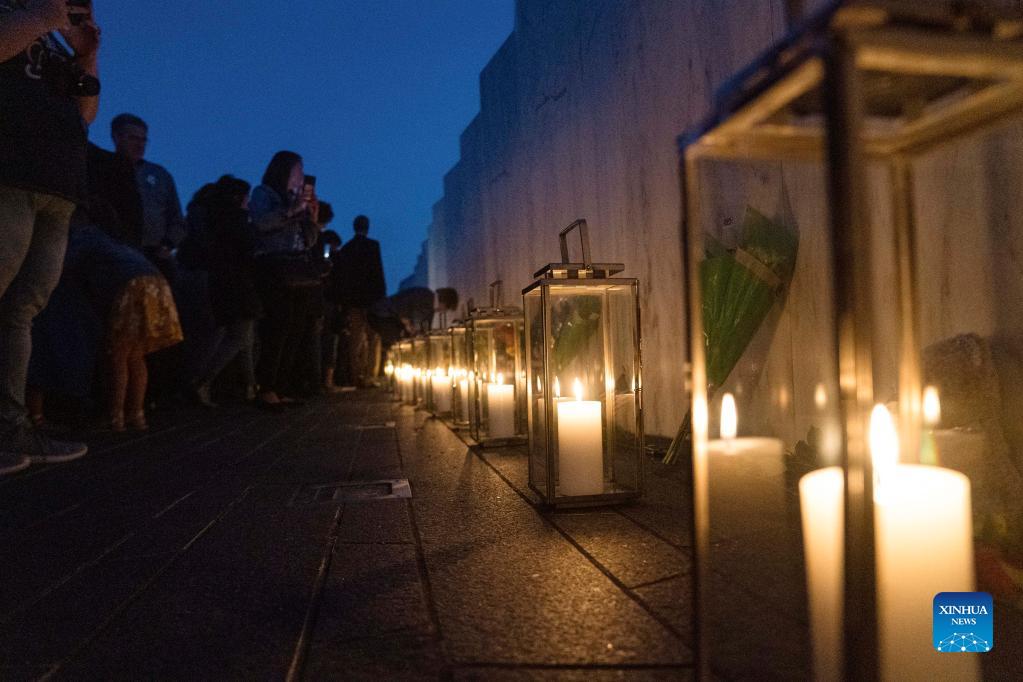
How did we get here? There are two main reasons that are inextricably intertwined like conjoined Siamese twins.
I’m old enough to remember watching President Dwight D. Eisenhower’s stark warning on black-and-white TV in his farewell address on January 17, 1961 as he was about to turn over the presidency to John F. Kennedy. He said that “we must guard against the acquisition of unwarranted influence, sought or unsought of the military-industrial complex” and that “only an alert and knowledgeable citizenry can compel the proper meshing of the huge industrial and military machinery of defense with our peaceful methods and goals, so that security and liberty may prosper together.” He was perfectly positioned to know as the former five-star Army General and Supreme Commander of the Allied Expeditionary Forces in World War II.
But we didn’t listen to him; we ignored his warning. It’s no accident that lobbying expenditures by defense contractors like Boeing and Northrop-Grumman are habitually near the top of the list. Because in the US, as the old saying goes “money talks and BS walks”.
The related twin is that our system of government is rigged against the people. Republicans, lately, but Democrats earlier on, have found ways to curtail voting by both gerrymandering, or cleverly drawing districts, to under-represent minorities like Blacks and Native Americans, and by restricting voter registrations and actual voting itself by these same groups. Unfortunately, with a libertarian majority Supreme Court there are no checks on these unconstitutional outrages.
Like the Judy Collins song of my youth, “Both Side Now” I’ve had enough experience to closely observe personally what a contrast China’s governance is to the US. In China, a Trump couldn’t be elected village leader, let alone a president because promotions in China are based on ability. And in China’s CPC meritocracy, the higher cadres rise, the richer experiences they have. It’s akin to my time at Harvard Business School which is grounded in the philosophy that an MBA student will have been exposed to every possible eventuality so that there are no future surprises. But the Chinese model goes Harvard one better because Chinese cadres have ever increasing real world experience but at Harvard, students are passive armchair observers, still largely untested in the real world.
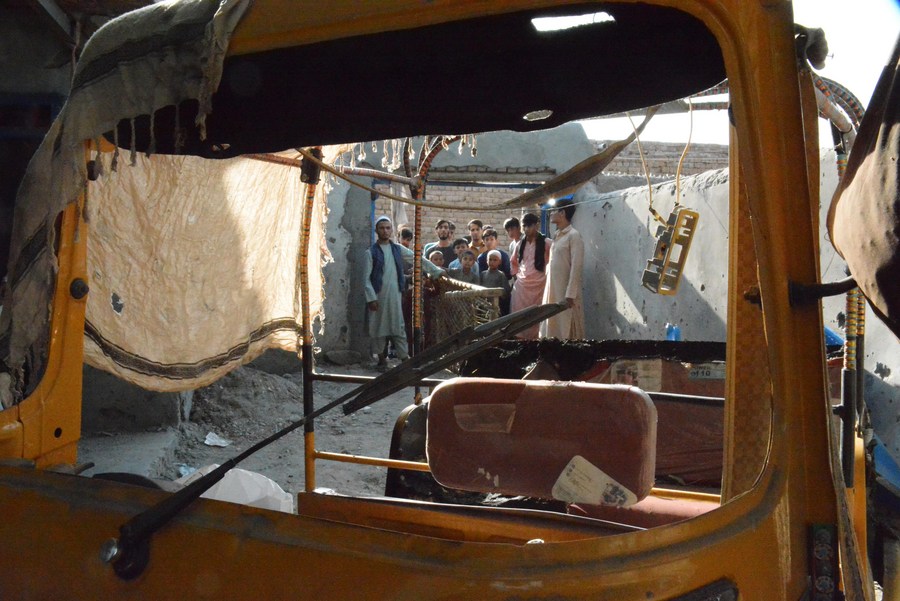
What did we get for all this spilled blood and squandered treasure supposedly intended for security? Insecurity, that’s what. We’ve opened a Pandora’s box of potential terrorism in Afghanistan’s region, including there, China, India and Pakistan, and indeed globally. Groups like ISIS-K and the East Turkestan Islamic Movement (ETIM) operate freely and it remains to be seen if the new Afghan government can or will contain them given historic relations with such terrorists.
It’s sad to remember that after 9/11, China and the US were allies in the War on Terror and worked together at addressing this scourge, especially getting the UN Security Council to designate ETIM as a terrorist organization in 2002. To show, how much the US has changed lately in attempting to demonize China, one of Trump’s Secretary of State Pompeo’s last of many irresponsible actions was to inexplicably remove ETIM from the State Department’s terror list. His false and flimsy excuse was that for a decade there was no “credible proof” that the terror group existed. It almost seems as if the US actually wanted to unleash terrorism in China, especially in Xinjiang, by giving freer rein to the forces of evil. Biden’s inexplicably amateurish withdrawal from Afghanistan further compounded Pompeo’s irresponsible act. It’s as if the US wanted ETIM to assist in destabilizing China, but with US having plausible deniability. Pompeo is a likely serious presidential candidate in 2024.
The world would be safer and more stable today if the US did what it falsely accuses China of not doing and that is engaging in the rules-based regional and international order together with China, Russia and their neighbors in the Shanghai Cooperation Organization, ASEAN, UN and the like. Thanks to the botched prosecution and withdrawal of a forever war, we are now dangerously living the ancient Chinese curse: may you live in interesting times.
The article reflects the author’s opinions, and not necessarily the views of China Focus.
 Facebook
Facebook
 Twitter
Twitter
 Linkedin
Linkedin
 Google +
Google +



